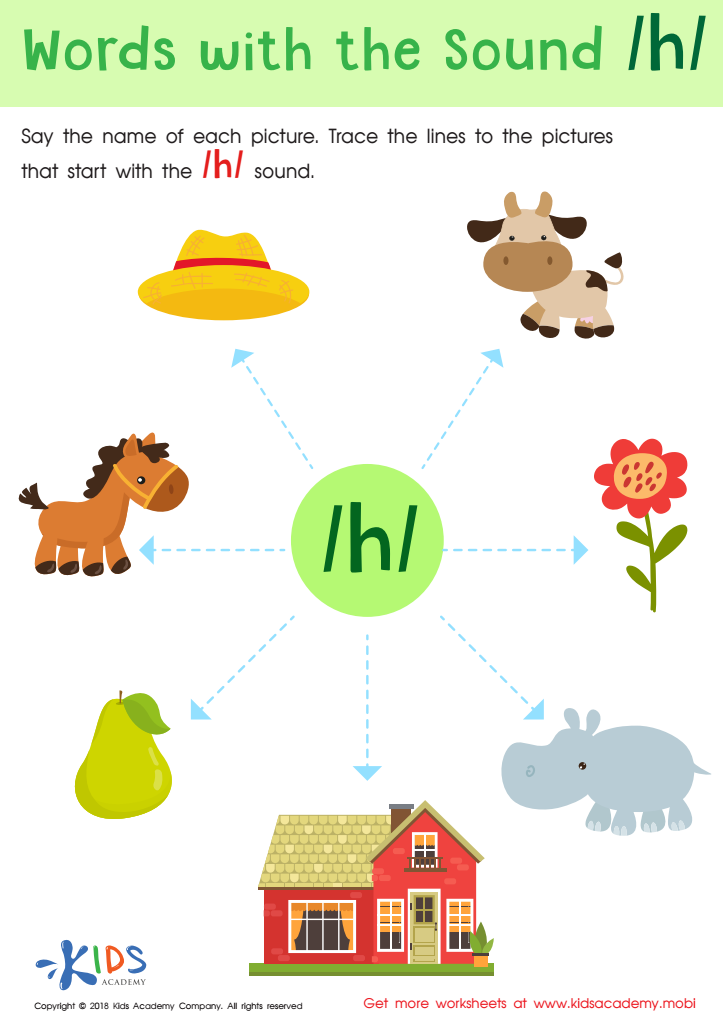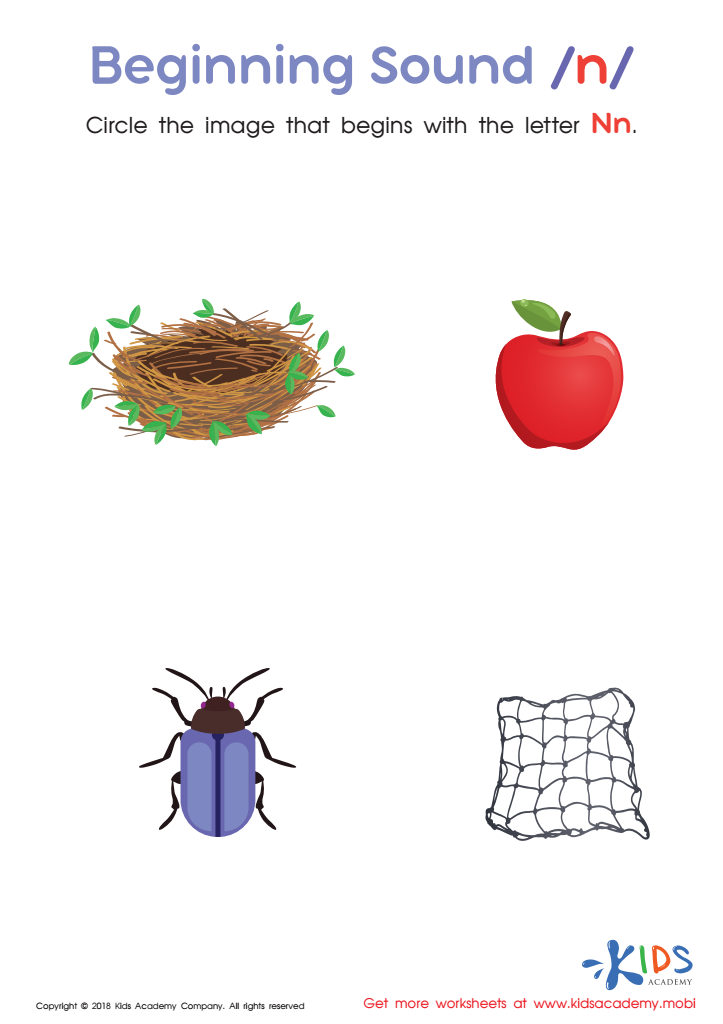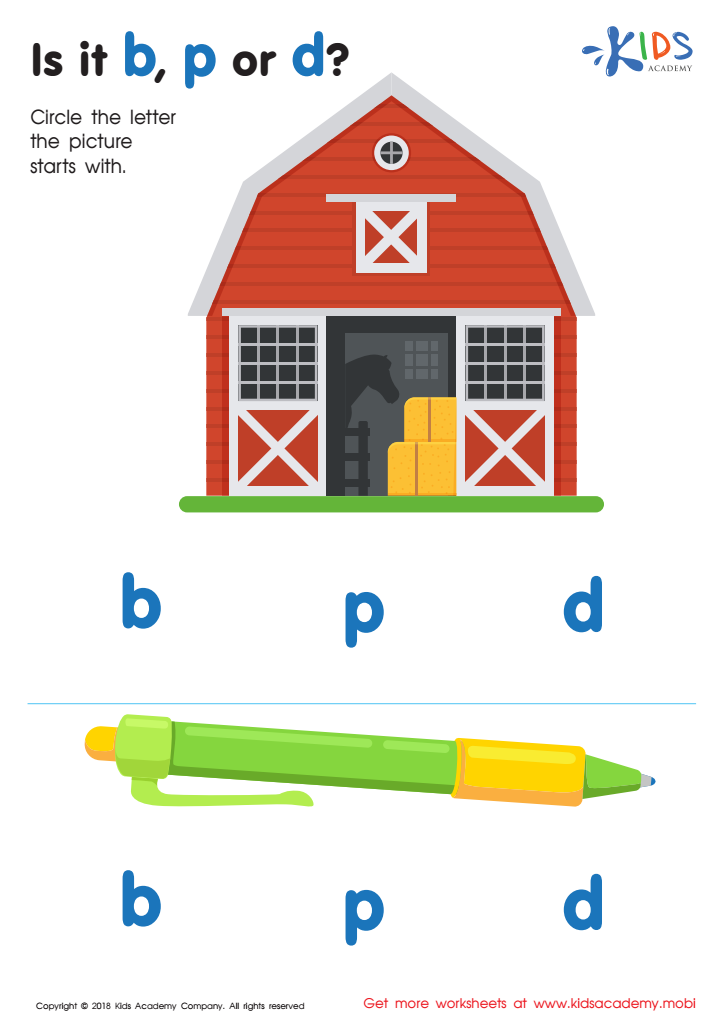Letter recognition Beginning Sounds Worksheets for Ages 5-9
3 filtered results
-
From - To
Enhance your child's reading foundation with our "Letter Recognition Beginning Sounds Worksheets for Ages 5-9." These expertly designed worksheets blend fun and education, helping young learners effortlessly identify letters and their corresponding sounds. Our wide variety of engaging activities not only reinforces letter recognition but also improves phonemic awareness, essential for early literacy skills. Whether your child is tracing letters, matching sounds, or identifying beginning sounds, each worksheet provides valuable practice for lasting retention. Suitable for ages 5-9, these printables are perfect for both classroom and home use, fostering confident and proficient early readers.


Words with sound h Reading Worksheet


Beginning Sound «n» Worksheet


Is it b, p or d? Worksheet
Letter recognition and understanding beginning sounds are fundamental building blocks for literacy, making them critical for children ages 5-9.
To start with, letter recognition is essential because it allows children to identify and name both uppercase and lowercase letters. This familiarity is the first step towards phonemic awareness, which is the ability to hear, identify, and manipulate individual sounds (phonemes) in spoken words. The knowledge of letters and their corresponding sounds is intrinsically linked to reading fluency. When children recognize letters quickly and accurately, they can focus their cognitive energy on decoding words and comprehending text, rather than getting bogged down by figuring out each letter.
Understanding beginning sounds bridges the gap between spoken and written language. By recognizing that certain sounds correspond to specific letters, children begin to 'decode' words in print, a key skill for reading. For instance, knowing that the letter "B" makes the /b/ sound helps children easily read the word "bat" when they encounter it.
Proficiency in these fundamental skills gives children confidence and motivation to read more, expanding their vocabulary and general knowledge. Conversely, difficulties in letter recognition and beginning sounds can lead to frustration and lack of interest in reading activities, potentially resulting in delayed literacy development. Thus, parents and teachers play a vital role in nurturing these skills early to lay a strong foundation for children's academic success.
 Assign to My Students
Assign to My Students















